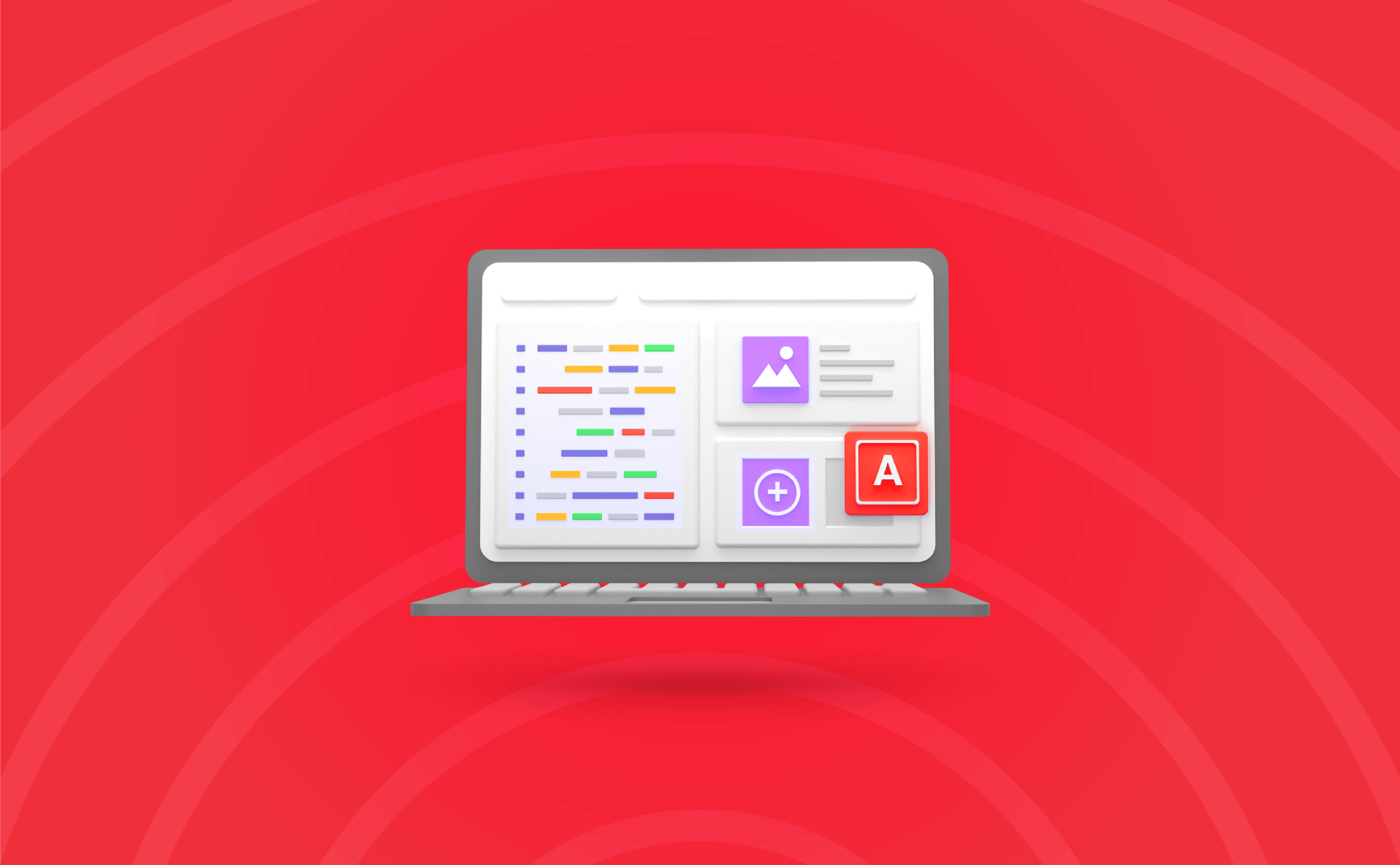The Future and Scope of Web Development – Technology Trends to Watch Out For

What is Web Development?
Web development simply means the process of creating and maintaining websites and includes various facets like web design, web programming, database management, and web publishing. To put it in a nutshell, the answer to “what is web development?” is that it includes all the activities related to the creation of applications that function on the internet – that is, websites.
There are two main aspects of web development: Frontend and Backend.
Frontend Development
The frontend is the part of the website with which the end-user interacts; what they see, click on, the forms they submit, and so on. It uses:
- HTML is used to design the frontend using markup language – it’s the website structure.
- CSS is a simple language used to render the web pages presentable
- JavaScript is a scripting language that renders the websites dynamic
- Bootstrap is an open-source, free suite of tools that makes websites and web apps responsive or mobile friendly.
ALSO READ: Top Front End Development Tools
Frameworks and Libraries used:
- React.js
- AngularJS
- VueJS
- Material UI
- jQuery UI
- Bootstrap
- Tailwind CSS
- Backbone.js
Backend Development
The server side is referred to as the backend; users can’t see or interact with this. It is the part of the software used to store and organize data. It uses:
- PHP, a scripting language for web development
- Java is a highly scalable programming language
- Python speeds up the work and enables efficient integration of systems
- Node.js is a cross-platform runtime environment that allows out-of-browser JavaScript code execution.
Backend Frameworks
- Express
- Django
- Rails
- Laravel
- Spring
ALSO READ: Top JavaScript Framework & Libraries
Need of Web Development
Why do we need web development? – to make websites; and why do we need websites? There are several reasons. It can be used to represent your business and your brand online. You can establish an online presence and build awareness about the products and services you offer, and help people to understand how they can use those products and services to resolve their problems, and how they are better than your competitors’. To put it succinctly, good web development allows you to:
- Communicate effectively with your visitors by offering valuable content, and responding in time to their queries, grievances, and suggestions
- Expand your reach, attract more traffic to your website, and improve your connect with your target audience
- Show potential customers that you are serious about your business, and build trust and confidence among customers about your brand.
- Maintain ownership of your brand identity and protect it from being hijacked by third-party websites and ads
- Send across the right message to your target audience and existing customers with relevant, useful and current information
- Create a content hub
- Have optimized websites which succeeds in attracting organic, search engine traffic, and improve chances of converting visitors
- Analyze website statistics like conversion rates, visitor engagement, and more, to help you craft or alter your marketing strategy
ALSO READ: Scope of eCommerce: The Future of Online Shopping
Latest and Trending Web Technologies

Now that you have read all about web development in a nutshell, let’s take a look at the web technologies that are in vogue now and likely to continue in the near future as well.
Websites are the face of your business – and not just code. Visitors are attracted to a website primarily because of the way it looks, and they stick around if the content is good. The businesses that are willing to implement the latest web development technologies will be more successful at attracting visitors and converting more visitors than those businesses that don’t. These are the most popular trends and technologies that will help you have a competitive edge:
1. Progressive Web Apps (PWA)
PWAs are the flag bearers of the future of web development as they reconstruct the app experience in the browser, and simplify matters for developers, as they don’t have to craft native apps for multiple devices. PWAs are especially great when you want to include elements to personalize the website, as including these in native mobile apps is a very cumbersome process.
PWA has trailblazing functionalities that ensure superfast website loading, enable responsive action, support interactive approach, and even facilitate offline working.
PWAs have revolutionized the user experience significantly, and are especially popular with businesses keen on a mobile-friendly approach. Thanks to the native app experience they provide, they are easily available and reliable and help increase customer engagement and increase conversions.
2. AI in Integrating Solutions
AI is a hot favorite not just currently, but will also be among the most popular future web technologies. With an increasing number of sites using artificial intelligence in different forms and for various purposes, AI is definitely going to be around for some time to come.
Use AI to predict customer behavior based on previous choices – and this often determines the design for the appearance of the website. AI can provide several valuable insights like which customers are likely to buy your products, popular products, individual customer’s purchase plan in the future and so on, by using facial and pattern identification
AI can help in boosting productivity and making the business more agile, and speed up operations. It helps to deliver personalized content and messaging to customers, improving their experience. You can expect more implementation of voice search, quantum and cloud computing, and even more deep learning through AI in the future.
AI Chatbots
This technology has gained such soaring heights of popularity that we feel it warrants a separate paragraph on its own. AI-powered chatbots became all the rage during the pandemic with most employees working from home, and many laid off.
While they have been restricted to answering simple queries and routing the complicated queries to relevant employees, they are now increasingly being used to handle more complex queries and functions.
Chatbots use a combination of speech recognition, NLP, and cognitive intelligence, minimizing the need for human support on websites. The new generation of chatbots are more independent and are gaining conversational maturity and emotional intelligence, capable of executing complicated logic and conversing via multiple channels.
ALSO READ: Website Architecture Design Guide
3. Voice-Related Functionalities
Voice-enabled search, SEO, and commerce are voice-related functionalities that have emerged or progressed in 2021. It provides a smooth customer experience and provides speedy access to website information. It is capable of multitasking and can keep customers engaged, leading to building loyalty, and eventually, increased conversion.
Tech giants are already leveraging this technology to expand the business and gain more customers. Digital assistants like Siri and Alexa are very popular, and they are used for everything from playing songs to scheduling appointments.
The attention span of people is falling at a steady pace; the scope of web development in future will take this matter into consideration. Single page websites allow users to get all the information on one page quickly, without any redirects. Such sites are secure, sleek, brief, and attractive – no mess, no fuss.
Businesses can deploy and maintain them easily, and at less cost. Most users today want information fast, and with fewer clicks; SPWs offer instant information and communication with the least waiting, and help businesses target customers with limited content. For startups, it’s a great way to market their brand effectively, and with the quick loading, responsiveness, and great UX, can convert customers faster.
5. Accelerated Mobile Pages (AMP)
This technology helps web originators to craft mobile-optimized sites that load quickly on any device. It is built using plugins and delivers exciting UI/UX, and surging ahead in popularity. It helps organizations build an online presence with simple coding. It uses:
- AMP JS – JS library designed for AMP pages
- AMP HTML – HTML tags optimized for AMP
- AMP CDN – all documents are delivered to the AMP page by this delivery manager
6. Dark-Themed UI & Low light UX
In the recent past, dark mode and low light have become all the rage, and this is quite likely to continue into the near future. The dark mode gives an attractive look even in daylight; additionally, they also last longer and consume less power, while being more soothing to the eyes. It highlights relevant text as well. It’s the hottest and in-demand trend where user experience is concerned. Moreover, they are also more SEO friendly, and developer-friendly.
ALSO READ: Advantages and Disadvantages of RDBMS
7. 3D Elements & Motion UI
3D visual elements have become immensely popular in the recent past, and we’re sure that this trend is likely to see a steep upward shift in the coming years. Users are more likely to spend more time on your site and interact with a 3D design as it provides an exciting experience.
This technology is especially useful for the entertainment industry and gaming but is also popular in science, medicine, architecture, interior design, engineering, and so on. Motion UI helps implement enhanced UI for animation. It’s much simpler to work with compared to JavaScript.
Minimalist designs can be implemented for enhanced interactions. These modern, attractive and robust designs are realistic and provide a futuristic experience, and also integrate smoothly with 2D images.
8. Internet of Things (IoT)
What is the future of web development without IoT? The proliferation of this innovative technology is already quite high and we experience a lot of it in our lives without realizing it.
Connected devices, cloud computing, and sensors are widely used in a range of appliances and equipment; today they are in demand in web development for rendering web architecture and UI more engaging and innovative. By integrating with smart technologies like serverless technologies, cloud-driven devices, wearables etc, it can facilitate complex communication between operational models and website layouts.
Web development will need to analyze data from multiple IoT devices, and serverless computing will be more efficient with this technology. Sensing, collecting, and sending data from connected devices to the cloud securely, this technology interacts with numerous devices and uses predictive design to forecast future consumer behavior.
9. Data Security
Data security has gained tremendous importance, in the wake of multiple threats and cyber-attacks. It is imperative that security is painstakingly ensured, to prevent hackers and malicious entities from getting sensitive information.
Businesses have to be proactive to mitigate risk, implement impenetrable anti-malware software, monitor cyber threats and attacks happening elsewhere, and so on.
Multi-layer security protocols to give access to information, data encryption, stringent testing in the development phase, data distribution, use of AI, etc., are all trends that are emerging in this sector.
10. Push Notifications
One normally associates push notifications with mobile apps – however, they are quickly becoming important in web development. It notifies users whenever new content is posted, thereby eliminating the need to check emails of browse sites to check.
Users can be notified at any time, and it’s a way of communicating directly with clients, regardless of where they are. It enables product branding, helps the target audience to make decisions quickly with the delivery of genuine messages, and the business can close more sales.
ALSO READ: Top Features and Benefits of Using React JS
Future of Web Technologies
The trends we discussed above, are all likely to continue into the foreseeable future, that is for certain. Out of those, most experts in the industry feel that the main technologies that will hold sway are:
Artificial Intelligence
Artificial Intelligence occupies a prime position in the space for the future scope of web development. Templates or codes don’t exist for this; all developers have to do is provide instructions, and the site will be laid out as they envisioned.
Artificial Design Intelligence or ADI is another emerging component of AI, and it assists developers to customize the software.
Virtual Reality
Till now, we have seen virtual reality only in gaming, but some businesses have already started including them in their websites. Experts predict that very soon, this technology will be used far more widely in websites and web applications, as it is very interactive and exciting for the end-user.
Voice Functionality
With human beings demanding more convenience, and being on the move constantly and multi-tasking, voice functionality including voice search, speech recognition, and eCommerce through voice, are definitely going to be used increasingly.
Internet of Things (IoT)
While developers are not directly connected to IoT, they implement it in web apps. With more and more devices becoming connected and sending vital information to the end-user through cloud-based central computers, IoT is here to stay.
ALSO READ: Top Software Development Methodologies
Scope of Web Development as a Career

There are numerous web developer jobs available in the market for those with the requisite skills. We discussed the trending technologies earlier – it goes without saying that it is essential for developers to master those technologies: IoT, AI, VR, AR, in addition to the latest programming languages, platforms, tools, and so on. If you aspire to be a web development professional, make sure you learn all these skills.
Which industries are likely to provide you with a career in web development? Almost every industry uses web development for their business:
- Manufacturing
- Retail
- Entertainment
- Education
- Banking and Insurance
- Advertisement Agencies
- Supply Chain
- Hospitality
- Travel
- Professionals
Even software development, mobile app development, and digital marketing companies have their own websites obviously.
ALSO READ: Best Front End Developer Skills
You can opt to do either a long-term or short-term web development course, and you can find work as any of the following:
- Web App Developer
- UI Designer
- Front-end or Backend Developer
- UX Architect
- UX Designer
- Web Marketing Analyst
You can either be part of a software company or freelance. There is immense scope for either. A freelancer is not likely to have a fixed income, but more freedom; you can pick and choose your projects. A fresh recruit is likely to earn Rs. 1,25,000 per annum, whereas an experienced developer can earn up to 6 or 7 times more.
Is Web Development a Good Career?
Web development can be an excellent, lucrative career, if you are passionate about developing websites, web apps, or doing UI/UX work. However, you need to frequently upgrade your skills as it is a continuously evolving field.
Webandcrafts is one of the leading website development company in Kerala, India. Our services include eCommerce development, website designing, mobile application development, digital marketing, etc. We are committed to providing the best services to our customers meeting industrial and business standards. If you have any queries on eCommerce development, contact us right away.
- Top 20 Advantages and Disadvantages of Social Media
- Top Advantages, Disadvantages and Limitations of Ecommerce - A Complete Guide
- Top 20 Advantages and Disadvantages of Digital Marketing
- Scope of eCommerce: The Future of Online Shopping in India
- Top 11 Advantages and Disadvantages of RDBMS You Should Know
Discover Digital Transformation
Please feel free to share your thoughts and we can discuss it over a cup of tea.



